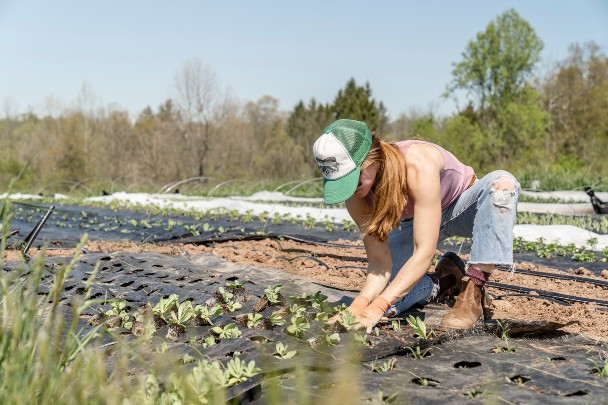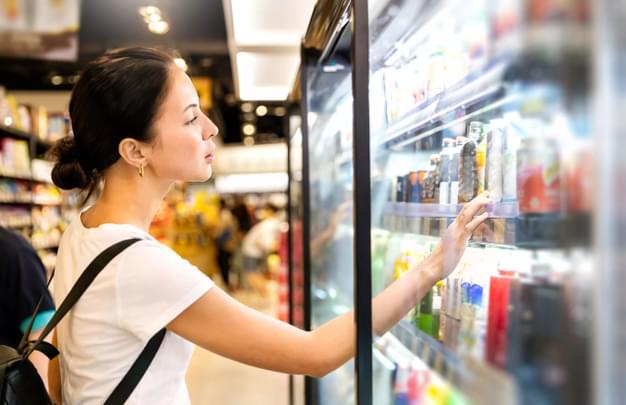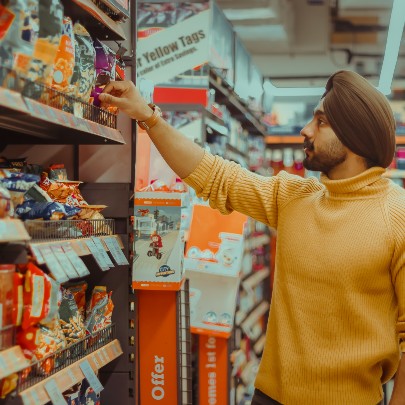August 01, 2023
Sustainability is becoming increasingly influential in driving consumer choice and retail success.
Retailers know this all too well, which is why effectively communicating - and proving – sustainable values and characteristics is becoming more and more essential for emerging brands.
With this in mind, we recently spoke to buyers from three major UK stores to find out what makes them tick, why sustainability is so important, and how it is often the key to opening doors and getting your products on the shelf.
These three leading tastemakers included:
- Adrian Boswell - Fresh Food Buyer Own Bought & Concessions - Selfridges & Co
- Sophie Davies - Head of Food - Planet Organic
- Eleanor Pinfield - Junior Buyer - The Apiary Incubator Programme - The Co-Op
Read on for a summary of their key insights on how eco-initiatives can elevate their proposition to grab the attention of buyers and secure listings.

Why sustainability matters
Sustainable values are becoming a huge focus for retailers and many have ambitious goals for achieving net zero, plans that can’t be achieved without their supply base joining them on the journey. Businesses that already have these values are going to be in greater demand and those that don’t risk being left behind.
Some retailers even have dedicated teams that asses whether or not new suppliers will fit into their project criteria. They are no longer just looking at bottom lines.
They need to be able to say, “I know the margins on this product aren’t quite as strong, but this business is taking fifteen tonnes of plastic out of the ecosystem.” It is important that this can be measured so they can gauge value and quantify their decisions; balancing the people, profit and planning elements of everything they do.
It is also becoming increasingly difficult to access financing without having targets around sustainability and net zero. Science based targets are no longer a “nice to have”, they are becoming increasingly necessary.
Providing proof
Buyers are being challenged to ask the supply base about their plans for achieving net zero. They want to see it on a piece of paper, they want them to explain it, show they understand it and provide evidence of impact.
They are generally pretty good at sniffing out false claims so data, accreditations and physical evidence will go along way.

Profit vs planet
Retailers work with many brands that face the challenges of higher price points throughout their supply chains, whether it is from packaging or from organic sourcing. Provided they are presented with robust evidence, they may be willing to take a lower margin if they believe a brand is genuinely going above and beyond.
In the short term, sustainable brands are going to remain at a premium. In the medium to long term, it will become the norm which will eventually drive the volume required to balance everything out.
At this point in time, retailers still need to feel confident that products offer genuine value for money so brands need to be able to communicate their story and explain why they have to charge a little bit more. This equally applies to consumers.
Communication is key
You need to be able to pitch your brand’s story in a variety of different ways. There's only so much information you can squeeze onto a piece of packaging so activating online and in-store can be a massive help.
Simplicity is the best way forward even if you are doing a lot of sustainable things. Sometimes you have to pick the one thing that you can do really well and build on that once you are more established. Don’t try and do everything at once as there are too many commercial compromises that you will need to scale.

Don’t let your products become too crowded. Be bold, be clear, minimal. Be fun; playful even.
Whatever approach you decide, try to remain consistent. Make sure you know what you are talking about and can back up all your claims.
It is getting harder for brands to communicate their mission front of pack, but it is also becoming more important as consumers need help to make more sustainable choices.
Over time, this will drive the volume needed to deliver real change.
Cutting through
The businesses that really stand out are the ones that are authentic. Successful pitches need to be delivered with passion and conviction.
B Corp is great from a B2B perspective as it is generally well understood by those within industry. But how do you get that message out to the consumer and tell them about all of the good work that is being done and why ? This all comes to down to education and making sure information is accessible.

You need to create a compelling vision for what are you doing now and what do you want to achieve in the future.
If you can make retailers and consumers feel part of this journey, your relationships can only be strengthened.
This journey is only possible with a clear set of goals. You need to continually challenge yourself as to how your business can be better, do better and go above and beyond for the environment.




